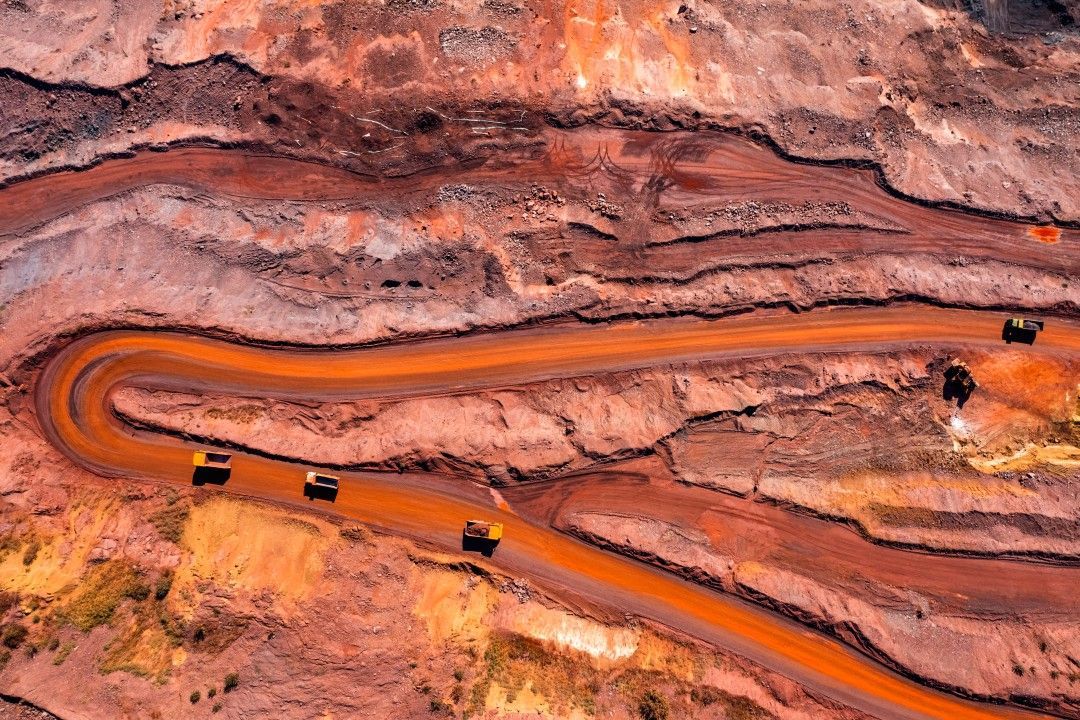Grain Ecosystem marks Schneider Electric’s commitment to climate initiatives, nurturing intrapreneurship and funding external ventures.
Carbon offsetting is beset with massive problems that must be fixed to serve the vital climate and sustainability market needs it was designed to serve. To solve these problems and to build a great climate-focused company, Schneider Electric and Mach49 teamed up to incubate a new venture called Grain Ecosystem.
Over nearly two centuries in operation, the French multinational energy leader, Schneider Electric, has reinvented itself countless times. Today it’s laying the groundwork for the next 200 years with extensive investments in sustainable new technologies.
Its latest investment, in sustainability startup Grain Ecosystem, marks Schneider Electric’s commitment to both nurturing intrapreneurship and funding external ventures. Mach49 partnered with Schneider Electric to incubate the startup, which was created by Schneider employees Ryan Letourneau and Matt Boujonnier as part of a company challenge. Today, Grain Ecosystem has spun out with early-stage backing from Schneider Electric’s corporate venture capital arm, SE Ventures.
But the path from corporate competition to a market-tested company isn’t linear. As Ryan and Matt report, the Mach49 venture building process helped position Grain for success. Here’s how they built the business.
Identifying a Market Mismatch
As the earth approaches irreversible climate tipping points, more companies than ever are making major commitments to climate and sustainability goals. This shows increasing corporate responsibility - but it also brings with it questions of accountability and impact.
Many companies, especially those in extractive or energy-intensive industries, have focused their net-zero efforts on investment in carbon offsets. These offsets, which are bought and sold through so-called voluntary carbon markets, are meant to compensate for emissions through equivalent greenhouse gas reductions or removals. In 2021, the voluntary market exceeded $1.4 billion, a remarkable rise from a value of less than $300 million in 2019. However carbon offsets have had varying levels of impact historically, with some having no positive impact at all. To Grain co-founder and CEO Ryan Letourneau, that mismatch between the patchwork of standards and regulations was a challenge begging to be solved through new platform technology—and so Grain was born.
Learning to Ask the Right Questions
Alongside CTO and co-founder Matthieu Boujonnier and a small team of Schneider Electric colleagues, Ryan created a business plan based on his carbon offset platform concept to enter their corporation’s innovation competition.
“There was a clear strategic alignment between Schneider Electric and what I had discovered as a potential pain point and problem, regardless of the solution. So I thought it was a good opportunity for me to put the idea in front of some folks who have spent a lot of time in sustainability,” Ryan said.
As the winner of Schneider Electric’s competition, the team worked with Mach49 to incubate Grain.
“It was a pretty in-depth competition,” Ryan explained. “We had built the business model, talked to some potential customers, and gotten feedback. We had a vision of what this could be. But on day one of the incubation, our Mach49 team said ‘Guys, I know you think you know what you're building, but time out, let's pause. Let’s go back to day zero and ask, who are the stakeholders and what pain do they have?’”
Though the exercise felt jarring to the Grain team at first, “it definitely made us stronger in the long run,” commented Ryan. With guidance from Mach49, the Grain team recruited stakeholders from the carbon offset sector with varying degrees of business maturity from across the globe. The team conducted over fifty customer development interviews in four weeks focused on uncovering the customer problem.
Once they started having conversations with potential customers, the Grain team realized that they were looking at the wrong stakeholders’ problems. Their initial focus on challenges in the market related to transparency and liquidity was highly relevant to carbon offset buyers, but their goal was to support carbon project developers.
“Our challenge statement was ‘How can we help project developers to create more impactful carbon projects,” explained Ryan. “We learned there were a lot of other pain points that these developers face in getting the project to market before you even create the carbon offset.”
“Something I will remember is the importance of customers to the process,” commented Matt. “By the end of the incubation with Mach49, we had a deep understanding of our customers and their pain points. We didn’t have that direct engagement with customers ourselves at Schneider. The Mach49 process helps startups like ours to be sure we aren’t building something that nobody wants.”
During incubation, the Grain team conducted over one hundred customer development and solution prototype interviews. These interviews enabled the team to refine the solution, further narrow the target customer and early adopters, and help define their go-to-market strategy.
From Concept to Company
The Grain team used Mach49’s unique venture building methodology to refine their business plan based on customer conversations and insights. The result? A model for a platform that would streamline the offset certification process for project developers and offer corporations access to new, impactful offset options.
With corporate approval and funding from SE Ventures, Grain is now an independent Schneider Electric spinoff with its own employees and board of directors. In March 2023 the Grain team had a successful platform launch at North American Carbon World.
What Grain Means for Schneider Electric
For Schneider Electric, Grain represents success on multiple levels. While the corporation has high hopes for financial return on its investment, it also recognizes that nurturing disruptive ventures within the organization is a powerful way to unlock creativity and scalable growth while tackling real-world challenges.
"Solving the world's biggest problems requires new thinking and innovation. SE Ventures' incubation practice is committed to uncovering and nurturing ideas at their earliest stage to build successful companies that accelerate the path to a net-zero world," said Gregoire Viasnoff, VP of Incubation at SE Ventures. "Grain Ecosystem's approach to simplification of carbon offset creation offers great potential for positive disruption in decarbonization efforts."
Want to learn more about venture building inside your own company? Get in touch.
/ MORE PERSPECTIVES FROM M49





